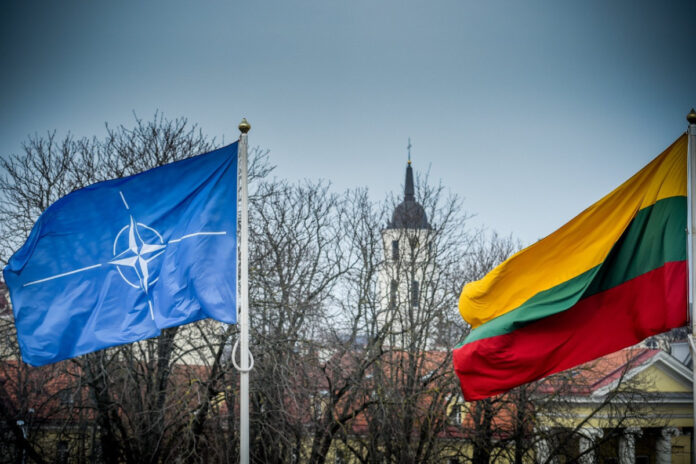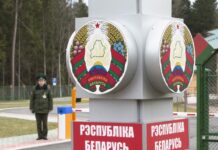
Lithuania’s Chief of Defence Valdemaras Rupšys announced on May 11 that over 3,000 troops will be deployed to ensure security during the upcoming NATO summit in Vilnius July 11-12, because there could be an intensification of propaganda, disinformation and provocations during the event. According to the military, hostile information operations are likely to include cyber-attacks and the dissemination of misleading information, an increase in refugee flows from Belarus, movements of military equipment and aircraft close to Lithuania’s border, provocations of civil disturbances and rumours on social media.
The Lithuanian military says it has carried out the preparatory part in partnership with allies and other institutions tasked with ensuring the event’s security in order to guarantee force interoperability and integrity. During the summit, Lithuanian military units, together with allies, will provide additional air defence, protect critical facilities, important routes and people. Troops will also carry out checks of vehicles, hotels and other venues.
Lithuania has already started to speak up about its goals for the Vilnius Summit. “The main ambition is for Ukraine to be the winner of this meeting,” said Prime Minister Ingrida Šimonytė at a conference in January. Discussions are also gaining momentum in Brussels. The key objectives for the Vilnius Summit are taking shape: practical and political support for Ukraine, harder commitments to raise military spending, and maintaining as well as strengthening deterrence policy, particularly on NATO’s eastern flank.
According to Peter W. Brorsen, head of RUSI Europe, a Brussels-based defence and security thinktank, NATO’s relations with Ukraine are already on a very good track and membership commitments can be expected after the war. But there is more potential for EU membership, he notes. “I see openness on the EU side. There are discussions about Ukrainian MPs being observers in the European Parliament (EP), and there are continued visits”.
Jamie Shea, formerly of the NATO Secretary General’s office believes that there will be no big decisions on Kyiv’s membership in Vilnius, but the Vilnius Summit could be an ice-breaker for the long-standing conflict over the NATO-Ukraine Commission, and an opportunity to reiterate the commitments already made to provide long-term support to Ukraine’s armed forces once the war is over and to keep the “open door” for Ukraine’s eventual membership in the alliance.
At the 2014 NATO summit in Wales, the allies set a target of raising defence spending to the target of 2 per cent of GDP within a decade, with 20 per cent of the budget going towards the purchase of new equipment. Some countries now believe that the target set during peacetime should be updated in view of a war in Europe. Several options are on the table: Lithuania is aiming for 2 per cent as an absolute minimum. However, there is some talk in the background of a more ambitious 3-per cent benchmark. “ …when, if not now, should we increase our defence budgets?” said Lithuanian Ambassador to NATO Deividas Matulionis. Shea adds that the increase in defence funding is necessary not only to help Ukraine’s military in the future, but also to replenish NATO’s war-ravaged equipment and ammunition depots and to strengthen capabilities across the alliance, including the eastern flank. “As we know, NATO’s ambition is to increase the rapid response troops from 40,000 to 300,000. Converting battalions into brigades is going to cost money as well,” Shea stressed.
The 2022 NATO Summit in Madrid adopted a series of decisions that should strengthen the defence of the eastern flank. More decisions in the same vein are expected in Vilnius. Certain countries, including Germany and France, have yet to prove their readiness to defend NATO’s eastern flank. Hopefully in Vilnius all of the allies participating in the battalions in the East will declare that they now have brigades, not just in theory, but “with the headquarters, with the armour”. The war in Ukraine has shown that air defence systems constitute a vital defence capability.
Official NATO statistics show that only nine out of 30 countries reached the 2-per cent threshold by 2022. The major European allies – France, Germany, Italy, Spain – are not among them. Countries are doing slightly better on their pledge to spend 20 per cent of defence spending on new equipment. Only five members fall short of this cimmitment: Belgium, the Czech Republic, Canada, Portugal and Slovenia, according to official NATO figures for 2022.





























